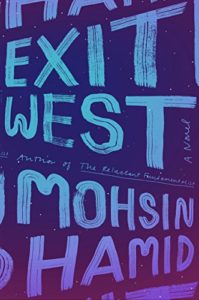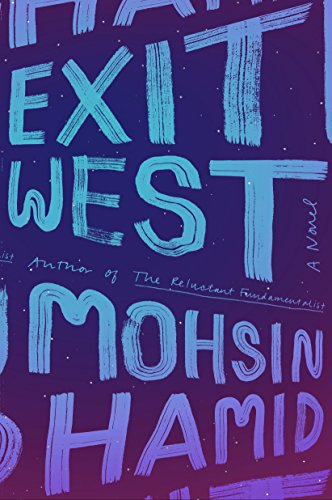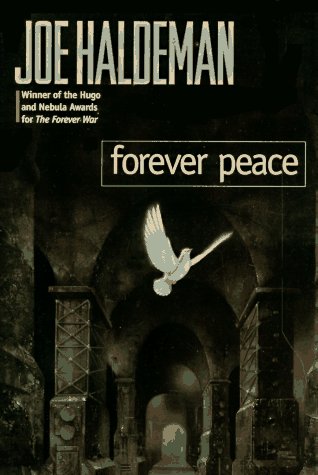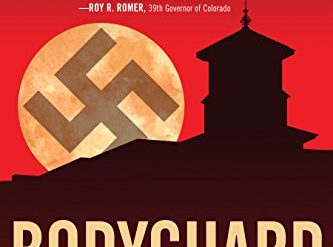
Most literary critics, and the people who hand out the Booker Prize, tend to be a reliable source of books I won’t like. So I should have been paying more attention when I picked up Exit West by the award-winning British-Pakistani novelist Mohsin Hamid. This book is a poor excuse for a novel.
At the outset, Exit West appears to be the tale of Nadia and Saeed, two middle-class young adults in Syria or Iraq who fall in love as the city they live in (Damascus? Aleppo? Baghdad? Mosul?) comes under attack from “militants” and soon falls to them. The promise Hamid sets up in these early chapters is that we’ll learn about the experience of becoming a refugee and adjusting to life in a new country. But that’s not what Hamid delivers. Instead, his tale veers off into silliness.
A clumsy metaphor that quickly grows old
Using the clumsy metaphor of doors that open onto new lives, Hamid whisks Nadia and Saeed through a black door somewhere in their beleaguered city—and, miraculously, they find themselves on a sunny beach on the island of Mykonos, Greece. With this one swift diversion, Hamid has bypassed what has become one of the signature experiences of Middle Eastern refugees: the grueling and perilous journey from their native country to one of the gateways to Europe. Then he does it again, and again, and again.
Several doors later, after a lengthy stay in an unrecognizable version of London, where “millions” of refugees have gathered and come under attack by nativist gangs and the British Army, they move on again, through another black door. The couple then end up in a shack on a mountaintop in Marin County, California, never having set foot in a car or on a ship, a railroad, or an airplane. Oh, and Native American traders show up nearby in Marin! (If you’re ever in Marin County, I strongly suspect you’ll have a hard time finding Native Americans of any occupation. However, there is a Native American Museum there.)
Exit West by Mohsin Hamid ★★☆☆☆
Compounding the confusion
To compound the confusion, the story of Nadia and Saeed is unaccountably interrupted with pointless scenes involving people they never meet in cities they never visit: San Diego, Amsterdam, Marrakesh, Tijuana, and others. There is no discernible reason for these scenes, other than to make this slim volume just ever so slightly thicker.
Were Hamid’s style compelling, I might be inclined to forgive some of these blunders. But it’s not. Run-on sentences, some of them a page long or longer, interrupt the flow of the story.
Perhaps Mohsin Hamid was simply not the right person to write a novel about refugees. After all, though he was born in Lahore, Pakistan, he spent much of his childhood in the United States; his father was a university professor who was studying for a Ph.D. at Stanford. Hamid returned to the U.S. at age 18 to study at Princeton and Harvard Law School. This isn’t exactly the profile of a Middle Eastern refugee, is it?
For related reading
For a much better novel about Middle Eastern refugees, see The Beekeeper of Aleppo by Christy Lefteri (Syrian refugees flee civil war in hopes of a better life).
Check out Top 10 great popular novels.
If your taste runs to genre fiction, check out my posts:
- Great sci-fi novels reviewed: my top 10
- My 20 favorite espionage novels
- 20 excellent standalone mysteries and thrillers
And you can always find my most popular reviews, and the most recent ones, on the Home Page.


























